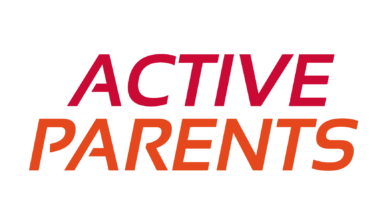Parenting Plan Washington State: A Comprehensive Guide to Navigating Co-Parenting Successfully

Parenting is a challenging yet rewarding journey, and for separated or divorced parents in Washington State, creating a parenting plan is a crucial step in ensuring the well-being of their children. In this comprehensive guide, we will explore the importance of parenting plans, the legal landscape in Washington, key elements to include, factors influencing these plans, and practical tips for successful co-parenting.Parenting Plan Washington State
Understanding the Importance of Parenting Plans (Parenting Plan Washington State)

A parenting plan is more than a legal document; it’s a roadmap for co-parents to navigate the complexities of raising children in separate households. The primary goal is to provide stability and a sense of security for the children while establishing clear guidelines for both parents.Parenting Plan Washington State
Navigating the Legal Landscape in Washington State(Parenting Plan Washington State)

Creating a parenting plan involves adhering to specific legal requirements. Washington State courts emphasize the best interests of the child when evaluating these plans. The court considers factors such as the child’s relationship with each parent, each parent’s ability to provide a stable environment, and the child’s emotional and developmental needs.Parenting Plan Washington State Parenting Plan Washington State.
Crafting a Comprehensive Parenting Plan

Custody Arrangements
Clearly defining custody arrangements is the cornerstone of any parenting plan. Whether it’s joint custody, sole custody, or a combination, the plan should outline where the child will reside and when.Parenting Plan Washington State
Visitation Schedules
A well-structured visitation schedule ensures that both parents have consistent and meaningful time with the child. Holiday and vacation schedules should also be clearly defined to avoid conflicts.
Decision-Making Authority
Determining who holds decision-making authority for significant aspects of the child’s life, such as education, healthcare, and religious upbringing, is essential. This helps avoid disputes and ensures both parents are actively involved.Parenting Plan Washington State
Key Elements of a Washington State Parenting Plan

Residency Provisions
Clearly outlining where the child will live and spend their time is vital. This includes weekdays, weekends, and holidays. Specific details provide clarity and minimize potential conflicts.Parenting Plan Washington State
Holiday and Vacation Schedules
Designating how holidays and vacations will be shared ensures that both parents have opportunities to create special memories with their child. Fair and agreed-upon schedules contribute to a harmonious co-parenting relationship.
Communication Methods
Establishing effective communication methods between co-parents is crucial. Whether it’s through email, text, or a dedicated co-parenting app, clear communication helps in coordinating schedules and making joint decisions.
Factors Influencing Parenting Plans

Child’s Age and Development
The age and developmental stage of the child play a significant role in determining the appropriate parenting plan. Younger children may need more frequent transitions between households, while older children may require flexibility to accommodate their activities.
Parental Cooperation
Successful co-parenting hinges on the ability of parents to cooperate. A parenting plan should encourage collaboration and flexibility, with both parents committed to putting the child’s needs first.
Special Considerations
Unique family circumstances, such as a child’s special needs or parental relocation, require special considerations in the parenting plan. Flexibility and a willingness to adapt are crucial in addressing these specific situations.
Legal Assistance in Crafting Parenting Plans

Given the legal intricacies involved, seeking professional legal advice is highly recommended. Attorneys experienced in family law can guide parents through the process, ensuring that the plan aligns with legal requirements and safeguards the child’s best interests.
Tips for Successful Co-Parenting in Washington
Open Communication
Maintaining open and honest communication is key. Both parents should feel comfortable discussing concerns and sharing important information about the child’s well-being.
Flexibility and Compromise
Flexibility is essential as circumstances may change. Being open to compromise and finding solutions that benefit the child, even if it requires adjustments to the parenting plan, is crucial.
Focusing on the Child’s Needs
A child-centric approach ensures that decisions and actions prioritize the well-being of the child. This perspective helps in creating a positive and nurturing environment for the child to thrive.
Common Challenges in Implementing Parenting Plans

Enforcement Issues
Ensuring that both parents adhere to the agreed-upon plan can be challenging. In such cases, legal remedies may be necessary to enforce compliance.
Modification Processes
As circumstances change, modifications to the parenting plan may be required. Understanding the legal processes for modifications is essential to navigate these changes successfully.
Real-life Examples of Successful Parenting Plans
The Collaborative Calendar
In this case, co-parents utilized a shared online calendar to coordinate schedules, reducing miscommunication and conflicts.
Child-Focused Decision Making
Successful parenting plans often involve joint decision-making, where both parents actively participate in decisions affecting the child’s life, ensuring a balanced and supportive upbringing.
Conclusion
Crafting a parenting plan in Washington State is a thoughtful and intricate process that requires consideration of legal requirements, the child’s needs, and effective communication between co-parents. By focusing on these elements and seeking professional guidance when needed, parents can establish a foundation for successful co-parenting.




yes yes we want that our post go viral ever….👍👍👍👍✔